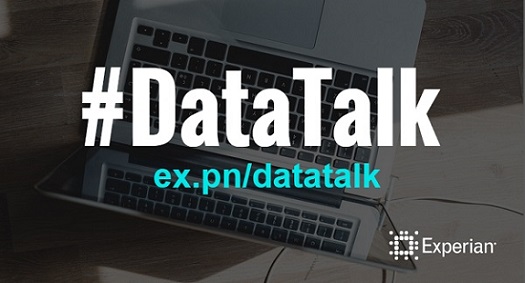sdfsad sddfs sdfsdf sdsf sd sfsdfsdf s
asdf sa dsdfdsf ds dsf sdfsdf sdfsd sdf
In this article…

 With 90 percent of the data in the world being created in the last two years, now more than ever, we need to know how to get the most out of our data-driven economy because the power of data can be a tremendous force for good in the world.
With 90 percent of the data in the world being created in the last two years, now more than ever, we need to know how to get the most out of our data-driven economy because the power of data can be a tremendous force for good in the world.

A behind-the-wheel look at alternative-power vehicles. [Infographic]

For years, brands lacked the means to create highly relevant and meaningful interactions with their customers. Today, that has changed–and the demand has never been greater. According to Experian Marketing Services’ State of Cross-Channel Marketing Report, marketers from around the world are adopting more customer-centric engagement strategies. With cross-channel marketing technology and predictive analytical tools becoming smarter and more accessible to marketers, they have the ability to help brands manage data, understand the preferences of their customers and most importantly, turn that intelligence into action across every channel at scale.

Eighty-eight per cent of Australians say day-to-day expenses, rent or mortgage repayments, groceries and bills, are the most common roadblocks to paying down debt, according to new research by Experian, the global information services company. Experian research also showed 65 per cent of Australians incorrectly believe contributing to superannuation or saving money can have a positive impact on your credit score. Andy Sheehan, Managing Director of Credit Services at Experian said the figures not only highlight a knowledge gap when it comes to understanding credit worthiness but also the difficulty Australians face in paying down debt as the cost of living continues to rise1. “Australians are more reliant on credit now than ever before. The Australian Securities and investment Commission noted recently that the average Australian credit card debt in 2014 was more than 30 per cent higher than the year before,” he said. “We know that the most effective way to manage credit card debt is to pay it off in full each month however, we also know that many of us are aren’t able to manage our debt in this way2. Our research suggests that about 19 per cent of Australians pay only the minimum repayment on their credit card and five per cent of those people prefer to put extra cash in savings instead of paying down their debt. “How we manage debt has a major impact on our life. While saving is important, it’s also important to make paying down debt one of your priorities,” said Sheehan. Unsurprisingly, one in three Australians who participated in the survey (33 per cent) said they were nervous about their ability to access and manage credit and according to the research, their concerns are justified. Sheehan explained there is a significant lack of consumer understanding about the behaviours that impact creditworthiness, particularly when it comes to savings and superannuation. “Australians are too busy ‘getting by’ to worry about their creditworthiness. Our research shows that Australians are alarmingly misinformed when it comes to credit reports. In overseas markets, consumers are more empowered to take charge of their credit profile, actively manage their credit reputation and use it to get a better deal. In order for this to become the norm here, Australians need to be better informed and more proactive with their credit reputation,” said Sheehan. The new figures show we still have a long way to go. The research shows that only 23 per cent of Australians actually understand what a credit score is and how it is used by lenders to grant credit. Sheehan said comprehensive credit reporting was a step in the right direction as it will encourage people to become more aware of their positioning in the credit landscape. “Comprehensive credit reporting is good news for consumers. The negative credit reporting system doesn’t take good credit behaviour into account. Australians deserve to be recognised for good financial behaviour and this should be reflected in our credit report to enable better deals,” explained Sheehan. Additional findings from the research show: A further 19 per cent of Australians incorrectly believe that having multiple lines of credit open can positively impact their creditworthiness 40 per cent of Australians have up to three lines of credit available to them that they use infrequently 60 per cent of people said their bank is meeting or exceeding their expectations on providing information about their credit profile, compared to just 45 per cent in February 2014 People should also be aware that they can access their credit reports from Experian for free at any time. It is a good idea for them to do this to help prevent identity theft and confirm the accuracy of their credit history. Consumers looking to receive a copy of their free credit report and score can do so by visiting the Experian Credit Services website or for general service enquiries consumers may call Experian Credit Services on 1300 783 684.

Experian’s 34th annual Vision Conference is quickly approaching. This year’s theme of “Think Big: Data, Analytics, Insights, Growth” will be explored through more than 80 breakout sessions with thought-provoking perspectives, best practices and solutions for addressing emerging business issues for clients. Each year, Vision combines in-depth research, cutting-edge technology and expertise from industry leaders to help Experian’s clients strengthen their balance sheets and plan for sustained growth.

A recent report by the Consumer Financial Protection Bureau (CFPB) found that many people are confused and frustrated about how to check credit reports and scores and they feel they lack information to take action to improve their credit histories. I have to admit that I was not surprised by some of the survey’s results, and I suspect my colleagues in financial literacy weren’t either. We devote our careers to educating consumers, financial educators and businesses about how to empower people to understand credit and the role it plays in their everyday lives. But it’s a steep uphill climb. As a new federal agency, the Consumer Financial Protection Bureau is a relative newcomer to the financial literacy arena, but many of the people working in its education division have years of knowledge and experience in the field. I’ve met and worked with a number of them, and I have great respect for the focus they are bringing to such an important issue. Many others — in the public sector like the Federal Trade Commission, and non-profits like the Mission Asset Fund and the Consumer Federation of America’s America Saves, and companies like Experian — invest in, conduct and work together on programs with the sole focus of helping people become more financially capable.

test



